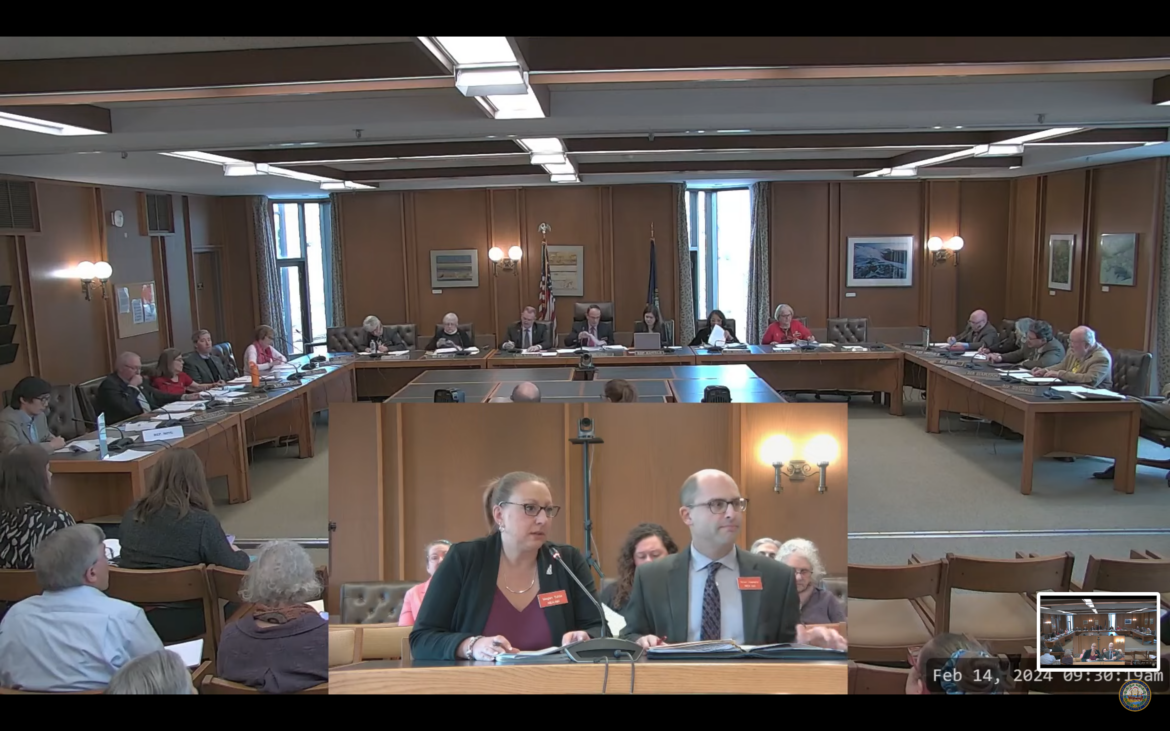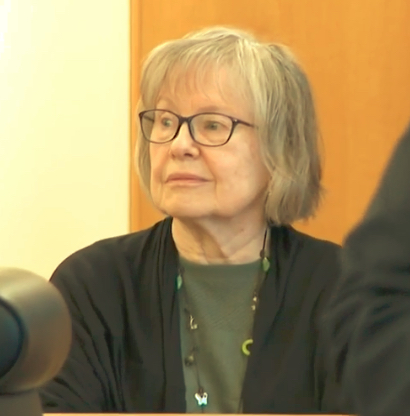By GARRY RAYNO, InDepthNH.org
CONCORD — Although the Department of Education acknowledges it has never had a problem accessing documents in educator investigations, it is seeking subpoena power for the agency’s commissioner.
House Bill 1353 would authorize the Department of Education Commissioner to issue subpoenas but is somewhat more narrow, according to the prime sponsor, Rep. Bob Lynn, R-Windham, than the one rejected last session.
However, education union officials say it is still too broad and would be ripe for abuse without the guardrails other state regulatory agencies have for issuing subpoenas.
The bill would allow the commissioner to issue a subpoena if there is “reason to believe” there has been a violation of the educator’s code of conduct, which David Trumble of Weare said really means “whenever you feel like it.”
Department of Education office of governance attorney Diana Fenton said the department has a very good working relationship with school districts and other partners and they are all on the same page wanting to protect students.
In some instances, she said she has had to go to an attorney’s office to review a report generated by a school district in an investigation of a teacher or educator, noting the school district owns the report.
“We have very good working relationships,” Fenton told the House Judiciary Committee Wednesday. “I cannot sit here and say a case did not move forward because we did not have access to a report.”
She said they are asking for subpoena power if in the future there is some resistance to turning over information, they would be able to access it.
Fenton said the department is willing to work with the committee to address the concerns raised at the public hearing about the bill.
Education union officials said the bill was one-sided giving the commission the authority to issue subpoenas, but not the person being investigated as would be the case with other agencies, and the person would not have the ability to try to squash the subpoena.
“We contend that subpoena authority for the Commissioner of Education continues to be unnecessary, and that the language of HB 1353 is too broad, fundamentally unfair, and inconsistent with other New Hampshire licensing agency and court procedures,” said Megan Tuttle, president of NEA —NH.
She noted the agency focuses on student safety in the bill, particularly “failing to provide appropriate supervision pursuant to local school board policy” which the department has used as a catchall for teacher investigations concerning content and other issues that are usually enforced at the local level.
Tuttle said the department has set up a one-sided process for teacher investigations that would deny a teacher’s due process rights including being able to also use subpoenas to also retrieve information and to quash them if they are not relevant and fails to follow other agencies in their use during the adjudicative process not the investigation process.
“HB 1353 is a continuation of an overreach of authority that the DOE has been seeking since the inception of this bill last year,” Tuttle said. “While we do not agree that this authority is necessary, even if we did, this bill is not written sufficiently to ensure a fair process nor the necessary safeguards to prevent abuse.”
Debrah Howes, president of the American Federation of Teachers — NH said there is no reason to change the law if the department is not having problems obtaining information. Having the commissioner issue subpoenas could conflict with ongoing investigation depending on what is alleged including criminal investigations.
“I do not want to stand up for a bad apple in schools,” Howes said, “but this gives you a false sense of security,” noting there are people who the department does not regulate in schools such as food service workers, bus drivers and maintenance personnel.
She also noted the section about failing to provide appropriate supervision saying it is too vague and will lead to litigation as will other sections of this bill.
Howes said the department had used that language “for fishing expeditions.”
She said the discipline process should be coming up from the local level and not from the top down.
“You will open a mine field with this,” Howes said. “You do not want to give this tool to someone who holds your livelihood — through your license — in his hands.”
Several parents testified in support of the bill, one saying her child was dragged through the halls by her teacher and nothing was done about it, although she raised the issue with the school’s principal.
She did say the teacher retired at the end of the school year.
Lynn said his understanding was that committee member and bill co-sponsor, Rep. Katelyn Kuttab, R-Windham, worked with the department to narrow the bill to the area involving a teacher’s credentials being investigated that would be subject to a subpoena, noting the concern last year that the bill was too broad.
Rep. Lynn said the bill tries to address the situation when the department seeks information from the school district or another individual, but they do not want to cooperate, there is little the department can do. “They can just say ‘go pound sand,’” Lynn said.
But committee member Rep. Marjorie Smith, D-Durham, noted the investigator for the department told the committee last year they have not had any problems obtaining information they have sought.
And she noted all other state agencies with subpoena power have it for a formal hearing, not during the investigative portion, as the bill would allow for the agency.
“A subpoena is not a search warrant. … It doesn’t mean you can run over to the school district and grab the records,” Smith said. “You send a subpoena to say ‘produce the records,’ and the school district can say no, we will not comply and to enforce it, you have to go to court.”
Christine Downing, the director of curriculum, instruction and assessment for the Cornish, Plainfield and Grantham school districts, opposed the bill.
One of her jobs, she said, is to train the staff on the educators’ code of conduct, which has been in place since 2019.
Downing said the committee should know if the department has an ongoing problem accessing documents from school districts, and the percentage that are not cooperative.
Otherwise she said, “This is a solution searching for a problem that doesn’t exist.”
There is also the presumption of innocence principle, she said, and without sufficient evidence, or reasonable cause, a teacher’s reputation could be damaged.
“You have to look closely at the checks and balances,” she said, adding there are other alternatives that could address what the agency seeks.
“You need to strike a balance between maintaining high standards for educators” Downing said, “and safeguard their rights.”
Trumble said the bill uses a different criteria than other state agencies to seek subpoenas.
“No other commissioner in New Hampshire has the power to grant subpoenas like this,” Trumble said. “No other state in the country gives their education commissioner this kind of power.”
He said the bill would allow “fishing expeditions” and would be another chilling effect on teachers in this state.
The committee did not make an immediate recommendation on the bill.
Garry Rayno may be reached at garry.rayno@yahoo.com. Garry has been a reporter in New Hampshire for 40 years.




